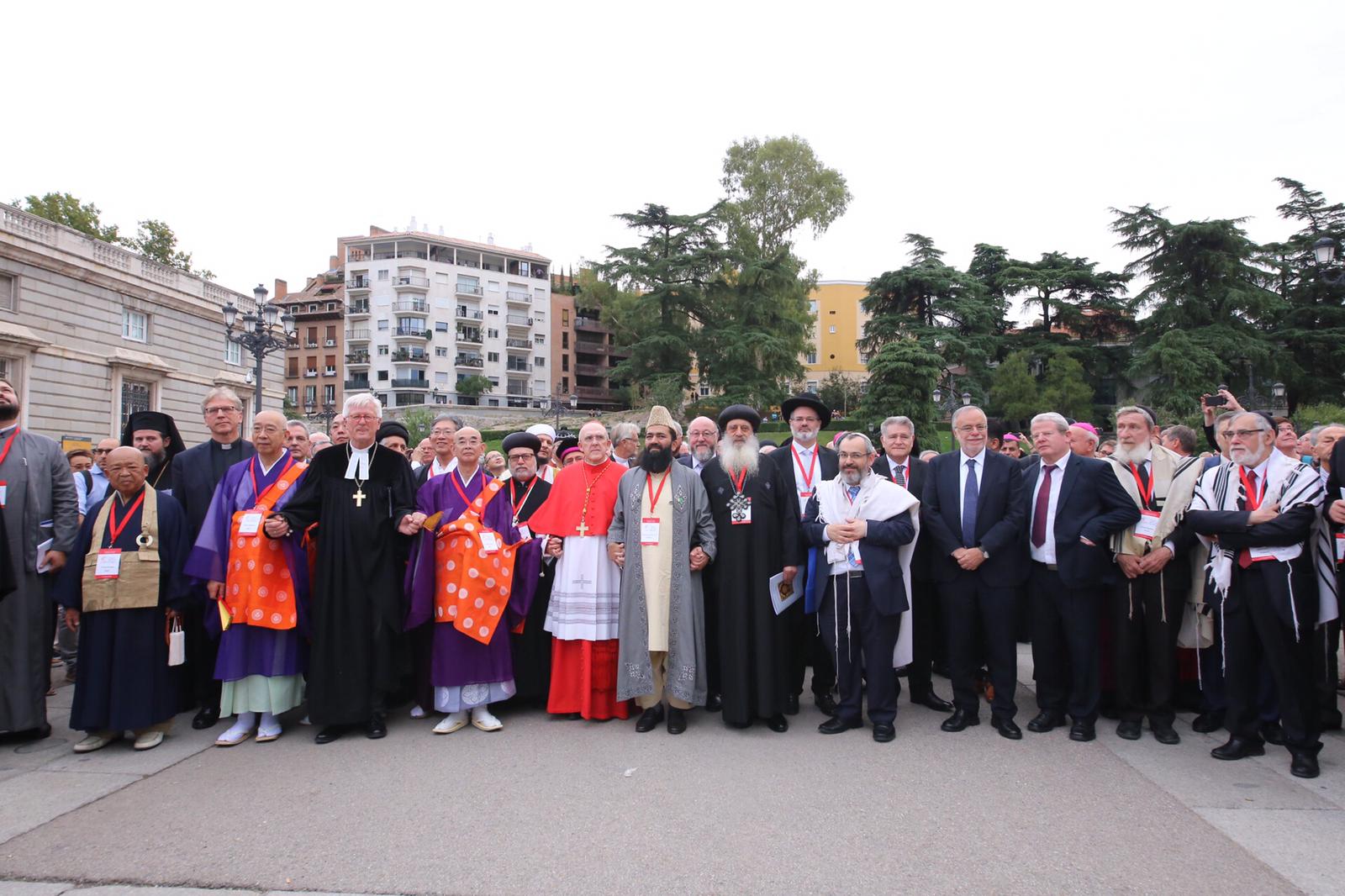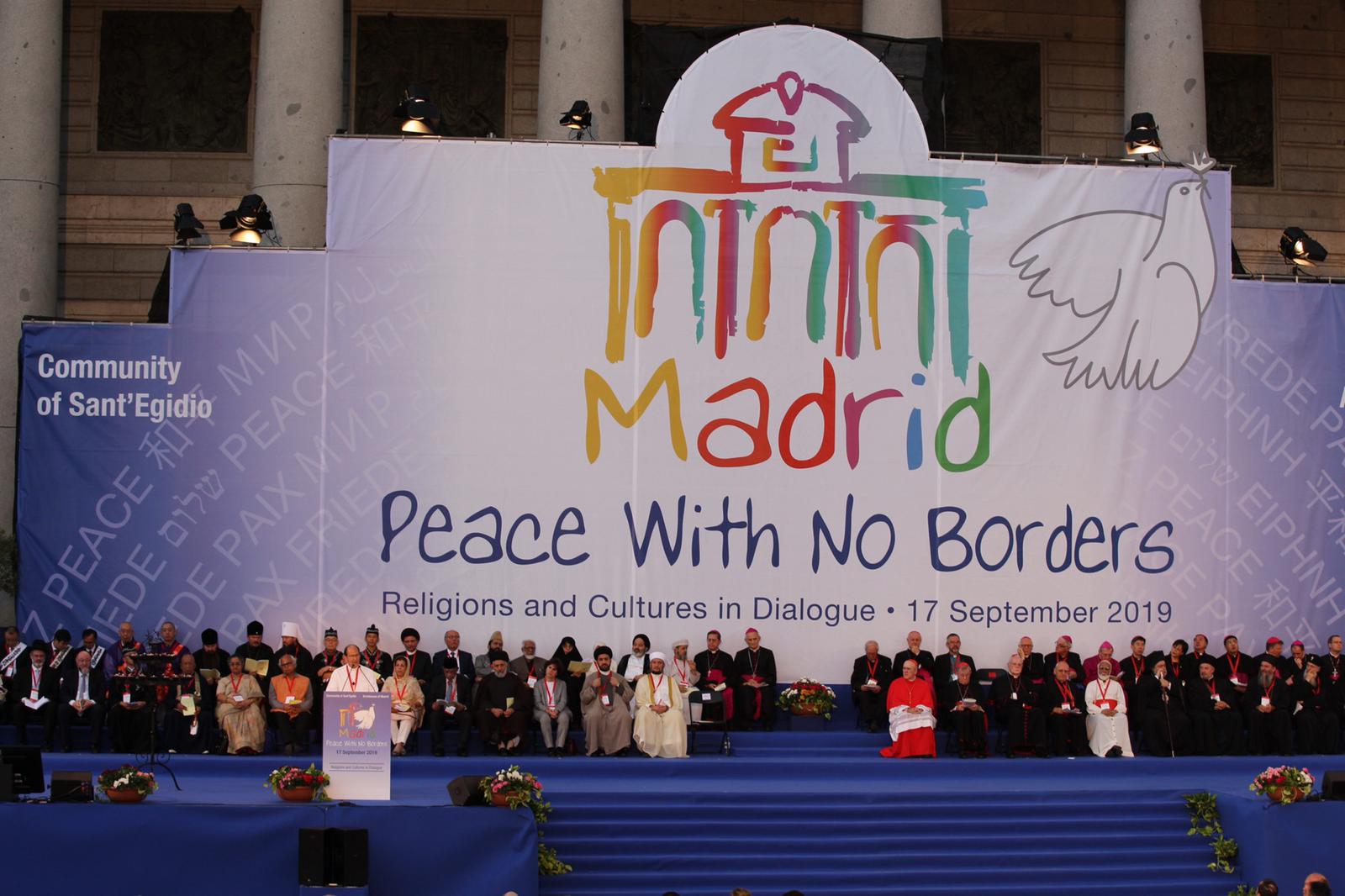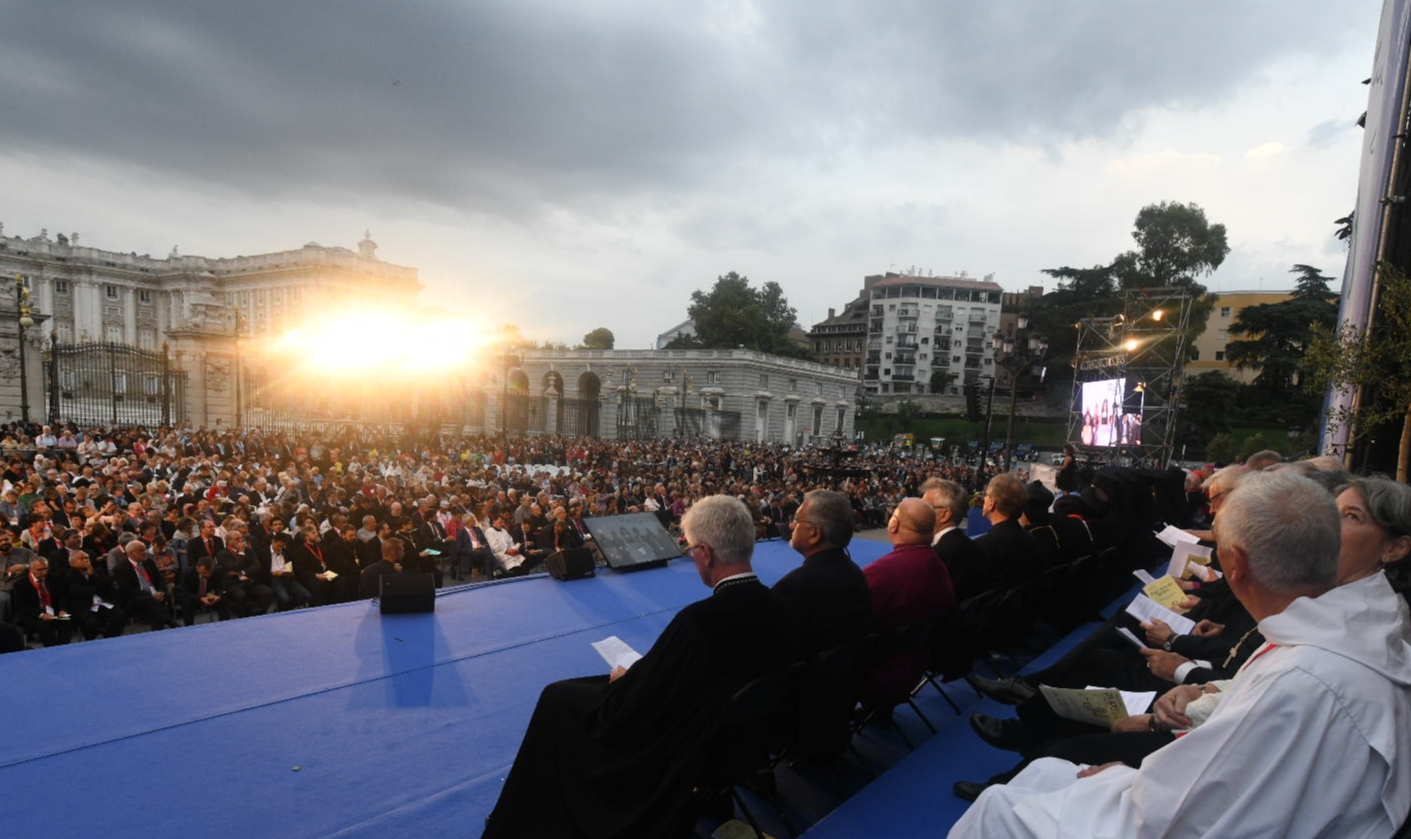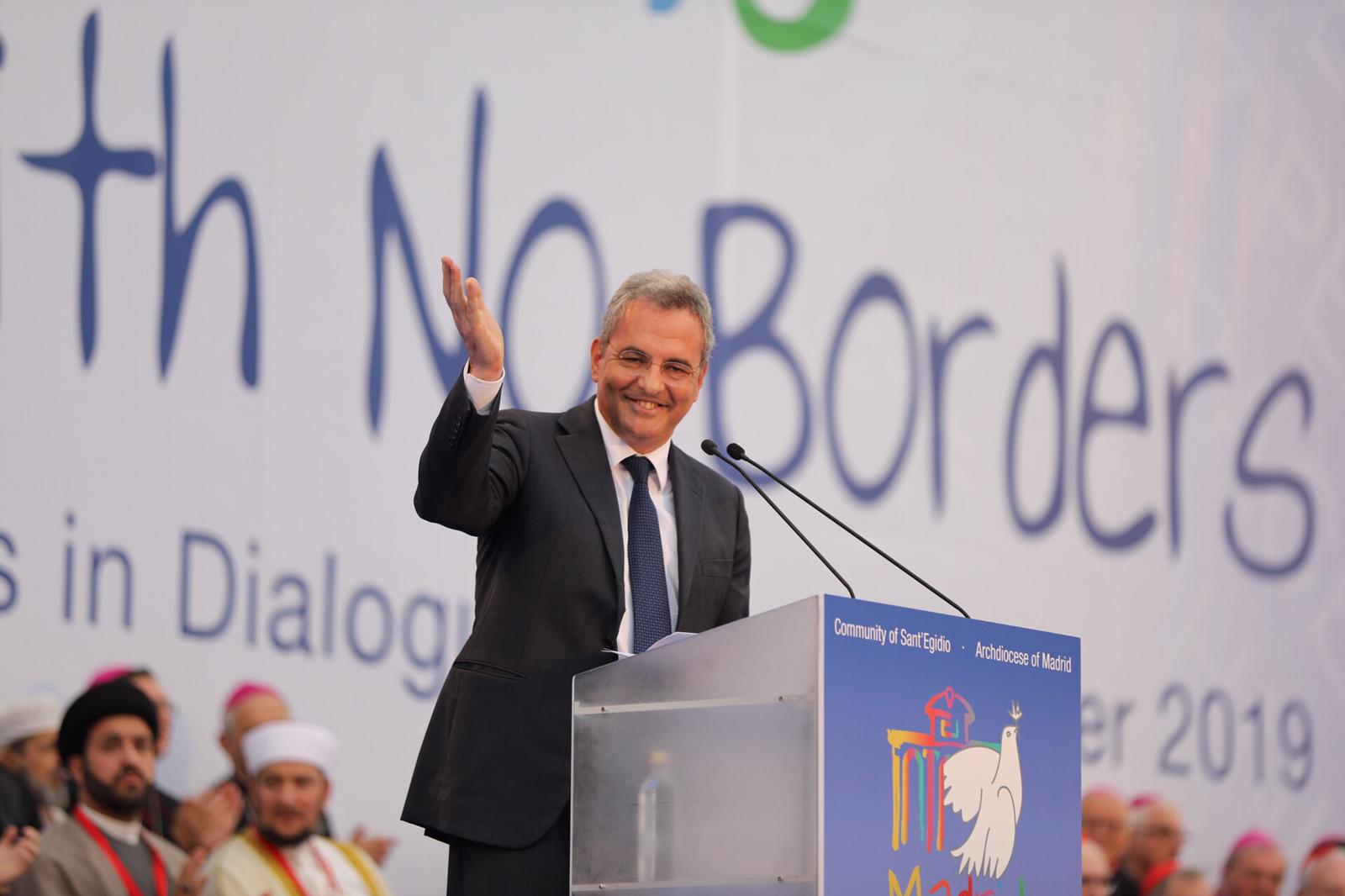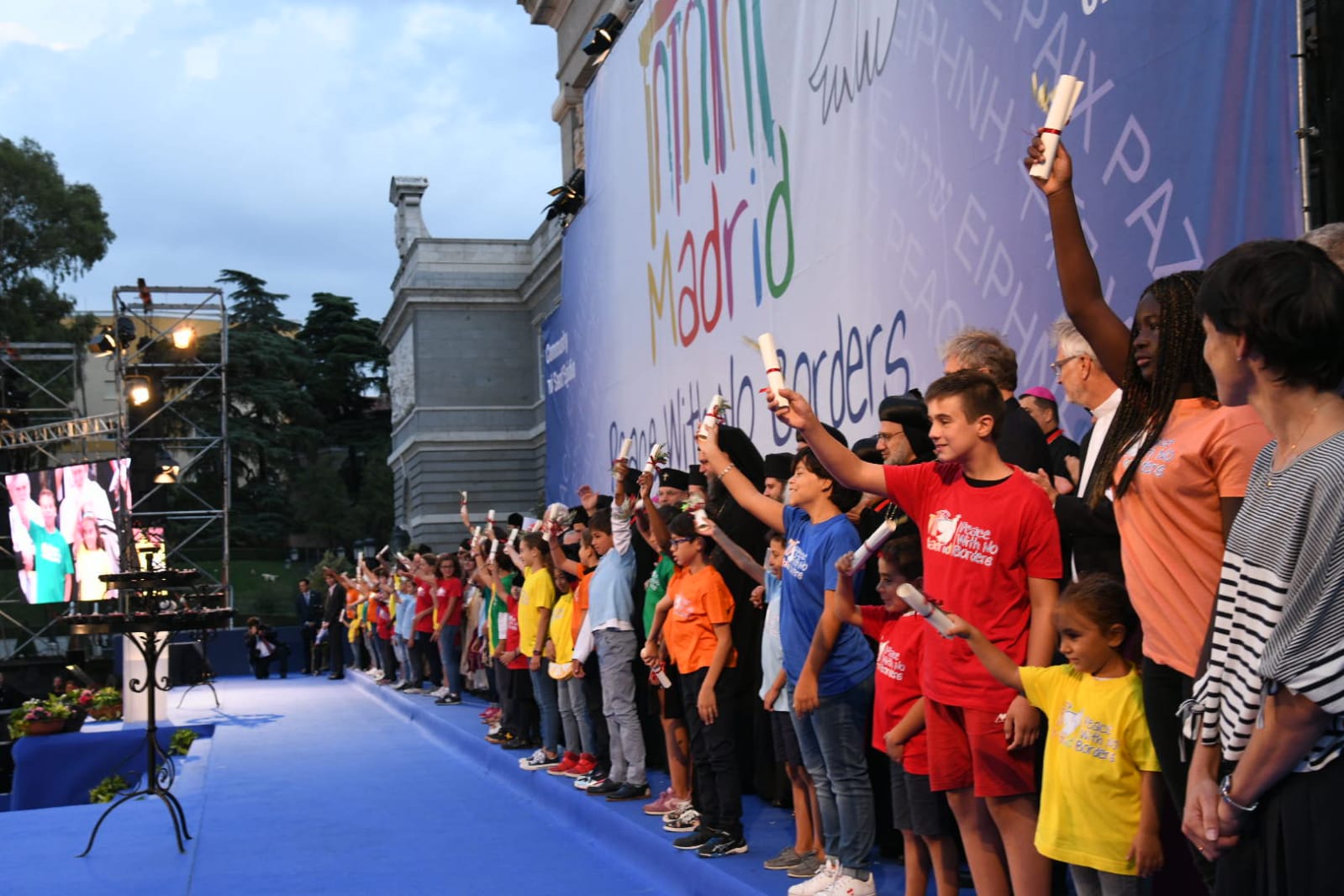September 17 2019 10:00 | Sala Antonio Palacios, Círculo de Bellas Artes
Speech of Ole Christian Maelen Kvarme
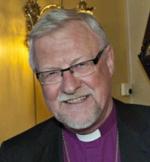
Good morning, and thank you for the privilege to participate in this panel on modern Christian martyrs and our quest for peace. It is a theme that touches our minds as well as our hearts.
Some students in Northern Europe were asked: “If a gun is pointed at your head, and you have to choose: Renounce your faith, or die! What will you do?” They had been shown a picture from the shores of Libya where 21 Coptic Christians refused to denounce their faith and had their throats slit by terrorists. The young students admitted: They probably would choose life.
In Northern Europe we are seldom confronted with this choice, and I have to make a further admission. A comfortable, but secularized society often paralyzes our witness as well as our solidarity with sisters and brothers living under persecution.
The apostle Paul said that if one member of the body suffers, the whole body is in pain. Do we feel this pain, we who live in the affluent part of the world and not under persecution? How do we respond - in our quest for peace? In this panel contribution I will share with you three brief reflections.
Praying for the mercy of God
Martyrdom is not to be strived for, but suffered. Those choosing not to denounce their faith are victims of the utmost expression of evil. Victims of evil are also the many killed in suicide attacks on worshipping communities. They were not given a choice, but were killed or wounded being part of a worshipping community. This is also a mark of martyrdom in our times: in Egypt and in Sri Lanka as well as among Muslims in New Zealand.
In the Lord´s prayer we ask: “Deliver us from evil!” Jesus also prayed for those who follow him: “My prayer is not that you take them out of the world, but that you protect them from evil.” And the Psalms constantly ask: “How long, O Lord, how long will the wicked be jubilant?” (Ps 94,3)
It is not the will of God that his people should suffer. On the contrary, He let his Son die on the cross to deliver and protect us from evil. In a very special way the martyrs are united with Christ in his suffering on the cross.
In our cry to God for their deliverance, we commend the martyrs to God’s mercy, that he will give them a share in the resurrection. But the number of actual martyrs will remain limited. Still it is mandatory for us to keep on praying for those under persecution, that God will deliver them from evil here and now. Our cry for God´s mercy is a prayer for those who do not have the strength to stand up and succumb to the threats against them, and it must also be a cry for mercy for the perpetrators as well as to them.
Transformation – protesting with acts of mercy
In prayer a transformation takes place. We become ourselves instruments of God´s mercy. Prayer commits us to acts of mercy, in solidarity with those suffering and in confrontation with hostility. In most countries we have organisations and churches with channels for support and assistance. Never before in history have so many Christians suffered from persecution. Do we lift them up to God in prayer and act accordingly?
Evil is s a reality in our world and present in our lives. The prayer of Jesus, “Deliver us from evil,” is in itself a denouncement of evil. The prophets, the Psalms of the Bible as well as Jesus spoke out against injustice. Protesting against evil is a necessary step in our search for peace, - but what kind of protest?
In the Book of Psalms there are several prayers for vengeance upon the wicked. When we read these difficult psalms carefully, we may be surprised. They do not lead to acts of vengeance or violence, but leave judgement and vengeance to God. And on the cross Jesus prayed: “Forgive them!”
Our Lutheran Church in Norway has a special link with the Coptic Church in Egypt. A testimony from there two years ago touched our minds and hearts. An old lady had lost her husband in a suicide bombing in a Coptic church on Palm Sunday. On Egyptian television she wept and cried: “We forgive, we don´t want revenge, but reconciliation!” The Muslim television host impressed me also. He exclaimed: “What is it with these Christians? They don´t seek revenge, but forgive and seek reconciliation.” The widow had spoken out of her suffering and weakness - with a remarkable strength.
Peace is a costly matter. It demands that we denounce evil and injustice; that we cry from our depth for reconciliation and peace and act accordingly, with compassion.
Remembrance and testimony - living witnesses
When in Rome, I go to the Church of Saint Bartholomew, dedicated to the memory of martyrs and where Sant’ Egidio families gather for Sunday worship. This fellowship and church also stretch my conscience and imagination.
Why do we need to remember the martyrs and implant this memory in our children, young people and in our own minds? It is certainly not for romantic reasons. Martyrdom is suffering and pain. The paradox lies in what the Lord said on his way to the cross: “I have come that they may have life, and have it to the full.” The martyrs testify to the intrinsic value of life, not only in the hereafter, but its fullness also here and now – in following the Lord of life.
I remember Easter Sunday in Moscow thirty years ago. After 70 years of oppression Russian Christians could again celebrate on the square now named after Lenin. They walked past the mausoleum and sang: Christos Voskres – Christ is truly risen. I shared their joy, but then my mind went to the martyrs during those years and to the many babushkas who had passed the Easter song on to their grandchildren and made the jubilation of that day possible.
Remembering the martyrs and their testimony awakens in us the calling of the risen Lord: to be his martyres – witnesses in Jerusalem, Judea and Samaria to the end of the earth, also in surroundings that tend to paralyze our faith and witness. They show us that overcoming evil is not done by power, but with words and acts of mercy through the Holy Spirit.
***
When Paul spoke of the cross of Christ, he called it a stumbling block and foolishness to many, but also said: “When I am weak, then I am strong.” Some times a public testimony is needed, challenging authorities and political powers. Most often witness is shared in our daily lives with a gentle word or an outstretched hand.
And all the time we pray.
Martyrs don´t seek confrontation for the sake of conflict. They carry its burden and seek reconciliation. Therefore we cry for God´s mercy, we raise our voice against injustice and replace enmity with forgiveness, friendship and acts of mercy. This is our path to peace, the path of living witnesses in dialogue - on the road to reconciliation and resurrection here and now, and with the hope that we share.
